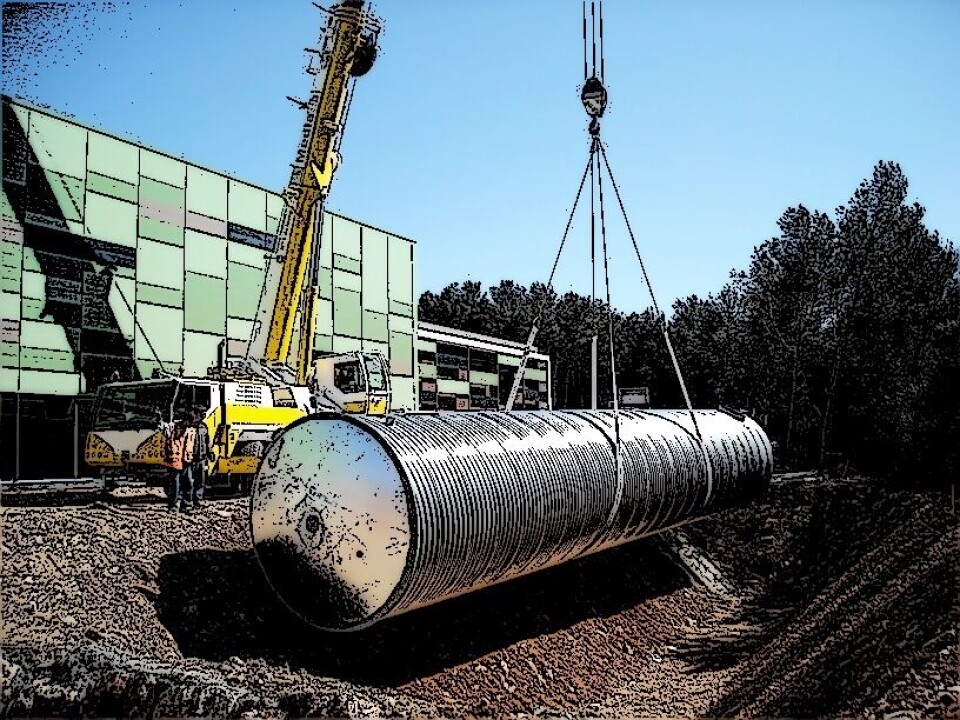-
Forgetting luggage on French transport can land you a hefty fine
Fines vary from €72 to €1,500 depending on the level of offence, with 360 items left per week
-
French party leader says Americans should return Statue of Liberty
‘Apparently you despise it…so she’ll be very happy here with us’
-
New poll: How do people in France view relationship with the US?
The study also asked about Ukraine’s President Zelensky, military aid, and joining NATO
Bunker sales soar in France due to nuclear threats and war in Ukraine
France has more nuclear power stations than most countries but fewer bunkers - global events and concern over nuclear safety are pushing up sales

The war in Ukraine and the possibility of nuclear weapons being used has led to a boom in home bunkers here.
Antoine Pozzi, CEO of Abri Souterrain, which has been selling shelters since 2015, said: “We have been getting around 40 serious queries a day, compared to 10 before the war.
“At first, most of our bunkers were for survivalists, who are convinced of the need to prepare for catastrophes, but after the fire at the Lubrizol factory in Rouen [in 2019, which cast a vast plume of toxic smoke], we started getting calls from ‘ordinary’ people.
Read more: Rouen on alert after chemical plant blast
“Now, with the war in Ukraine, it is mainly well-off people who want to make sure they have somewhere safe to go if they need to.”
Read more: War in Ukraine: Rise in iodine tablet requests at French pharmacies
Cheapest bunker costs €40,000
The Abri Souterrain bunker is built around a corrugated steel tube, which is lowered horizontally into a hole and then covered up. Stairs in a second vertical tube link it to the surface.
“If the tube is covered with 2m of soil, which is the solution most people go for, it will not survive a direct hit from a bomb or a missile, but it will protect you from a bomb landing nearby,” Mr Pozzi said.
The cheapest bunker he provides is a 4m tube with two beds, a toilet and shower, and a simple filtered ventilation system, which costs €40,000.
Another €10,000-€15,000 should be factored in for earthworks, and water/electricity connections.
Many people want to add independent electricity and water sources, which push up the cost, as does installing a full chemical filter system or even a chemical and nuclear dust filter system to a military standard.
Toilets are either dry, plumbed into a soak-away under the bunker, or linked to a pump that sends the contents up into the usual sewer system.
Other manufacturers have different designs, with one offering prefabricated reinforced concrete units to be buried.
Another builds the bunker in situ, using concrete blocks with steel reinforcing rods in a similar way to building a swimming pool. Both these systems cost around €100,000 to €150,000.
France is playing catch up with other countries
Mr Pozzi said most people install bunkers close to their house and use them as wine cellars or unusual guest rooms.
“Underground, the temperature does not vary much and it is very quiet and comfortable,” he said.
Read more: Bordeaux whisky matures in an old Nazi bunker
He has a background in building and building supplies and started developing bunkers “for a laugh” after people who had been buying security doors and windows said they were looking to install them too.
“When we did our first, there was so much interest that we started taking orders, and have not looked back,” he said.
“France, the country with more nuclear power stations than anywhere else, and with the nuclear bomb, is one of the countries with the fewest number of bunkers, but I think we are starting to catch up.”
The country with the highest number of bunkers per head of population is Switzerland, where every home must have easy access to one by law.
In the 1980s, county councils in England were ordered to prepare bunkers to ensure local government could continue if there was a nuclear strike.
In Taunton, Somerset county councillors were taken on a tour of their facility – only to find that the toilets were outside.
Related articles
Painful and important history of France’s WW2 bunkers
France ups defence and deploys three of its four nuclear submarines
Macron condemns attack on Ukraine nuclear site, promises new measures
























